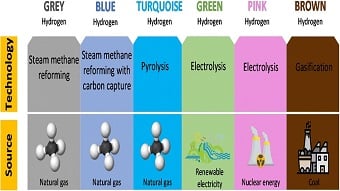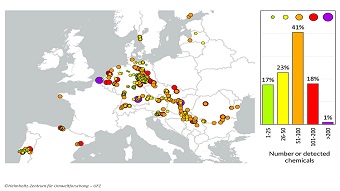Report: Global warming implications of a hydrogen economy
S. Himmelstein | April 25, 2022Hydrogen is being widely touted as an environmentally sustainable energy carrier and alterative to fossil fuels, yet a new study issued by the U.K. Department of Business, Energy and Industrial Strategy finds that hydrogen is twice as powerful a greenhouse gas as previously considered.
The report explains that as an indirect greenhouse gas, hydrogen reacts with other greenhouse gases in the atmosphere to increase their global warming potential. Over a 100-year time period, a ton of hydrogen in the atmosphere will warm the Earth some 11 times more than a ton of carbon dioxide, with an uncertainty of ± 5. The presence of hydrogen also increases the concentration of both tropospheric ozone and Hydrogen is twice as powerful a greenhouse gas as previously considered. Source: U.K. National Grid stratospheric water vapor, contributing to a radiative forcing effect that also increases temperatures.
Hydrogen is twice as powerful a greenhouse gas as previously considered. Source: U.K. National Grid stratospheric water vapor, contributing to a radiative forcing effect that also increases temperatures.
Leakage of hydrogen into the atmosphere from pipelines and venting and purging activities will decrease the tropospheric concentration of hydroxyl radicals, the major tropospheric oxidant, and serve to increase the atmospheric lifetime of methane and its impact on climate. Minimization of leaks must be a priority if hydrogen is adopted as a major energy source.
The climate and air quality benefit of a transition to a hydrogen-powered economy will require actions to address and minimize hydrogen leakage and reduce ancillary emissions of volatile organic compounds, nitrogen oxides, carbon monoxide and other pollutants.





There's a down side to everything. The leakage will be hard to control.
How does this compare to the leakage of methane?